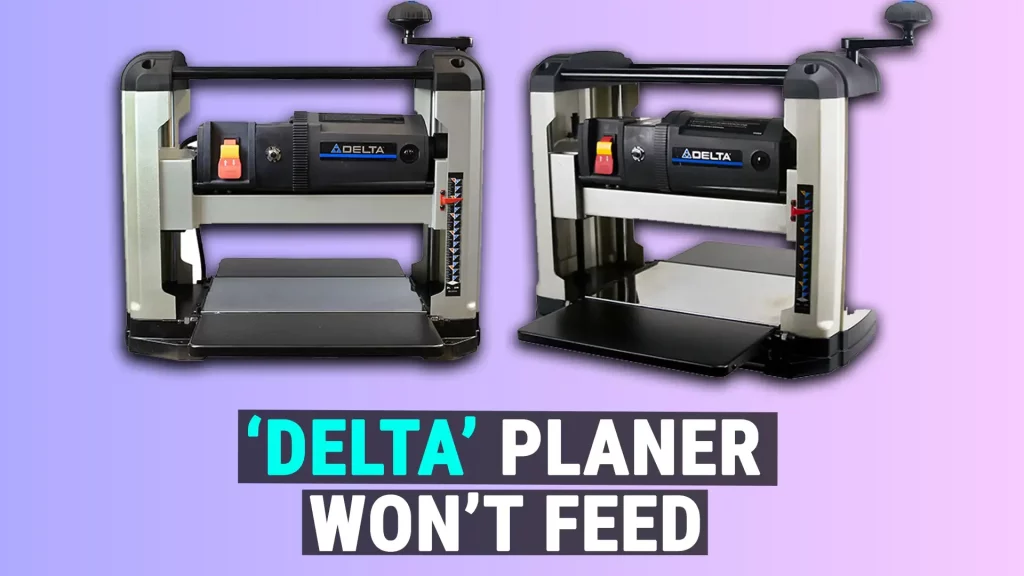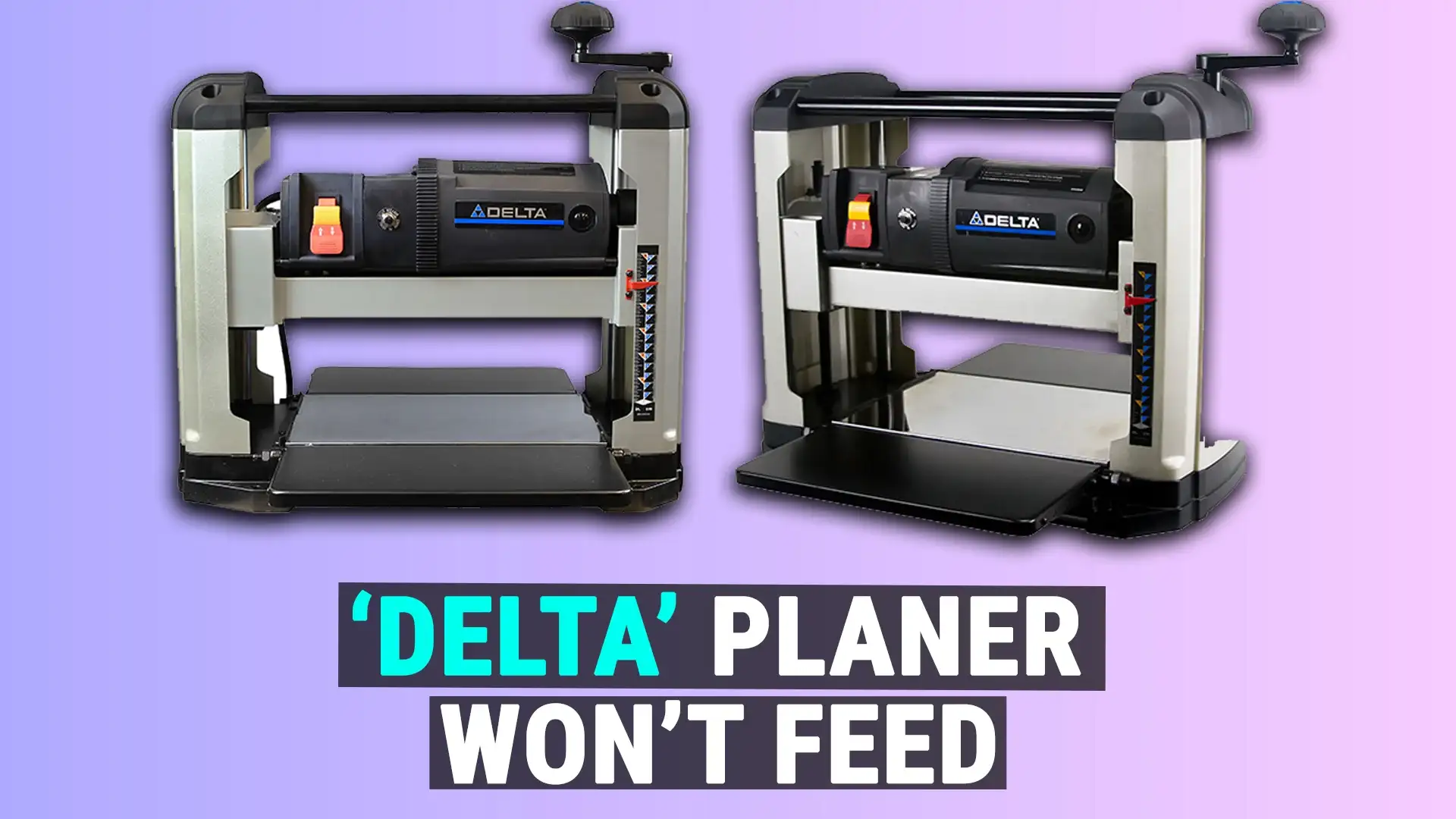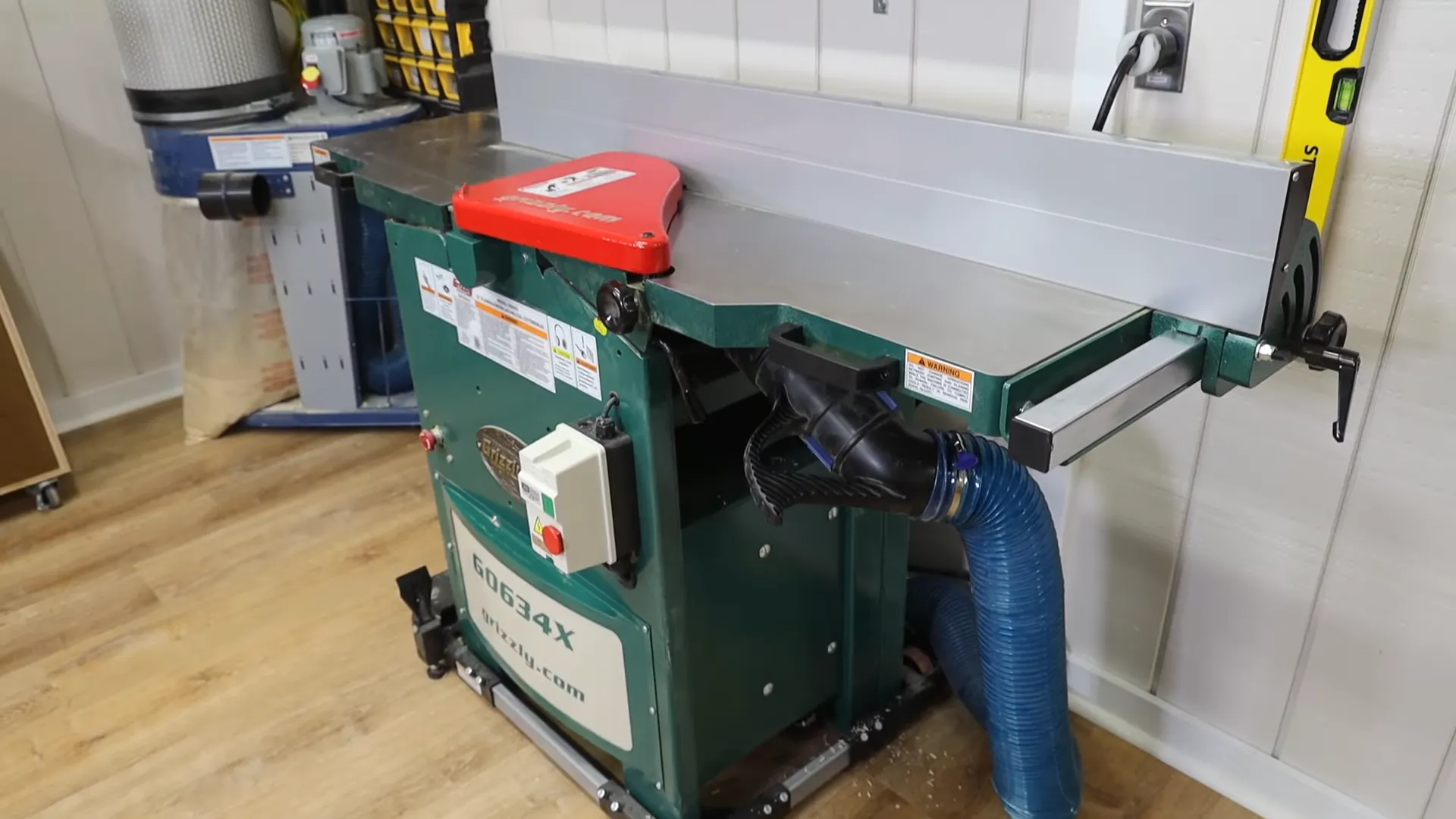Delta Planer Won’t Feed [Fixed]
If your Delta planer isn’t feeding properly, you’re not alone. This issue can have multiple causes, but there are steps you can take to troubleshoot and fix it.
In this article, we’ll cover the symptoms, potential causes, and troubleshooting steps for a Delta planer that won’t feed.
We’ll also provide further resources for assistance.
Whether you’re a seasoned pro or new to woodworking, this information can help get your Delta planer working optimally again.
Symptoms of a Delta Planer that Won’t Feed
There are several symptoms you may notice if your Delta planer is having trouble feeding properly:
- The planer stops or stalls during use.
- The planer struggles to push the wood through the rollers.
- The planer produces uneven or rough cuts.
- The planer produces a high amount of sawdust or shavings.
- The planer produces excessive noise.
If you’re experiencing any of these symptoms, it’s likely that there is a problem with the feeding mechanism of your planer.
It’s important to address this issue as soon as possible, as continuing to use a planer that isn’t feeding properly can lead to further damage or even injuries.

Potential Causes of a Delta Planer that Won’t Feed
There are several potential causes for a Delta planer that won’t feed properly:
- The rollers or feed mechanism is damaged. The rollers and feed mechanism of a planer are responsible for pulling the wood through the machine. If these components are damaged or not functioning properly, the planer may struggle to feed the wood.
- The planer blades are dull or damaged. If the planer blades are dull or damaged, they may not be able to effectively cut through the wood, causing the planer to struggle to feed the wood.
- The wood is too wet or too dry. Wood that is too wet or too dry may be more difficult for the planer to process, leading to feeding issues.
- The planer is overloaded. If the planer is being asked to process more wood than it is designed to handle, it may struggle to feed the wood properly.
- The planer is not properly maintained. Regular maintenance, such as cleaning and lubricating the planer, is necessary to ensure optimal performance. If the planer is not properly maintained, it may have difficulty feeding the wood.
Troubleshooting Steps for a Delta Planer that Won’t Feed
If your Delta planer is having trouble feeding, there are several steps you can take to troubleshoot and fix the issue:
- Check the rollers and feed mechanism. Look for any visible damage or debris that may be preventing the rollers from functioning properly. Clean the rollers and feed mechanism if necessary.
- Check the planer blades. If the blades are dull or damaged, they will need to be sharpened or replaced.
- Check the moisture content of the wood. Wood that is too wet or too dry may be more difficult for the planer to process. If the moisture content of the wood is not within the recommended range, try using wood with a different moisture content.
- Reduce the amount of wood being processed at once. If the planer is overloaded, it may struggle to feed the wood properly. Try processing smaller amounts of wood at a time to see if this helps.
- Perform regular maintenance on the planer. This includes cleaning and lubricating the planer according to the manufacturer’s instructions.
If you have tried these steps and the planer is still having trouble feeding, it may be necessary to consult with a professional or the manufacturer for further assistance.
Popular Delta Planers With Feeding Issues
Feeding issues can occur with any type of planer, regardless of the brand or model. However, here is a list of some popular Delta planers that may experience feeding issues:
- Delta 22-555 Portable Thickness Planer
- Delta Power Tools 22-590 Portable Thickness Planer
- Delta 22-580 Portable Thickness Planer
- Delta 22-547X X5 Jointer/Planer
- Delta 22-547X X5 Jointer/Planer with Extension Table
- Delta 37-195X X5 JOINTER
- Delta 37-195X X5 JOINTER with Extension Table
If you own a Delta planer that is not on this list, it does not necessarily mean that feeding issues are uncommon for that particular model.
It is important to follow the troubleshooting steps outlined in the previous section to diagnose and fix any feeding issues you may be experiencing with your planer.
Factors that May Affect the Feeding Performance of a Delta Planer
Some potential factors that may affect the feeding performance of a Delta planer include:
- The age and condition of the planer. Older or poorly maintained planers may be more prone to feeding issues.
- The type and condition of the wood being processed. Harder or wetter woods may be more difficult for a planer to process, leading to feeding issues.
- The condition of the planer blades. If the blades are dull or damaged, they may struggle to cut through the wood, leading to feeding issues.
- The maintenance and usage of the planer. Proper maintenance and not overloading the planer can help prevent feeding issues.
Conclusion:
If your Delta planer is having trouble feeding properly, there are several potential causes and troubleshooting steps you can try to fix the issue.
These include checking the rollers and feed mechanism, checking the planer blades, checking the moisture content of the wood, reducing the amount of wood being processed at once, and performing regular maintenance on the planer.
If you have tried these steps and the issue persists, it may be necessary to consult with a professional or the manufacturer for further assistance.
Further Resources:
- Delta Machinery Customer Service: https://deltamachinery.com/support/
- Delta Planer User Manuals: https://www.mikestools.com/Delta-Tools-Owners-Manuals.aspx
- Woodworking forums and online communities: These can be a good resource for seeking advice and guidance from other woodworkers who may have experience with similar issues on Delta planers.


